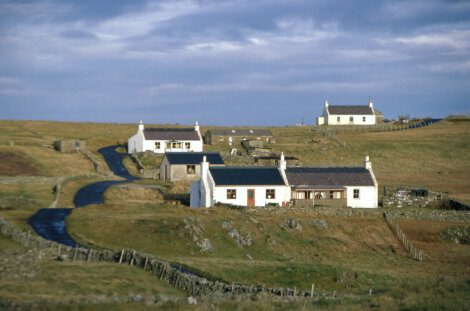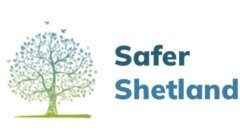Community / Transport, fuel poverty and housing highlighted as human rights concerns in rural Scotland
TRANSPORT and internet connectivity, fuel poverty and a lack of affordable and quality housing are human rights concerns in rural areas of Scotland.
That is according to the Scottish Human Rights Commission, which has been in Shetland as part of a wider project across the Highlands and Islands.
The commission is aiming to explore how economic, social and cultural rights are being experienced in rural areas by visiting charities and third sector organisations.
Shetland was the first port of call on the commission’s trip across the Highlands and Islands, with representatives set to also visit areas like Orkney, Inverness, Elgin and Stornoway.
It comes as Shetland MSP Beatrice Wishart has highlighted the challenges of rural poverty in the Scottish Parliament – noting in particular the impact of high energy bills.
Earlier this year the human rights commission delivered a report to the United Nations on how economic, social and cultural rights are being experienced in Scotland.
Its evidence gathering highlighted the following issues of particular human rights concern in rural areas of Scotland:
- Lack of affordable and quality housing
- Limited access to sufficient and nutritious food
- Inaccessible health care services
- Fuel poverty
- Access to technology or poor internet connectivity
- Poverty related attainment gap in education
- Transport connectivity to essential public services and supplies
Many of these issues are well known to the Shetland community, from the high levels of fuel poverty and a shortage of affordable housing, to poor broadband and unreliable transport connections.
Following the commission’s Highlands and Islands trip, it will present a final report on the region to the Scottish Parliament in spring next year.
Executive director Jan Savage said: “We are focusing on economic, social and cultural rights, which includes how the government provides essential services to people for things like housing, health, education, culture and environmental rights.
Become a member of Shetland News
“We have been approached by members of communities in the Highlands and Islands who are concerned about lack of affordable housing, high levels of food insecurity and difficulties in accessing medical services in rural areas.
“Through our treaty monitoring work to the United Nations, we have found that there is a lack of information and available data, specific to the Highlands and Islands, in comparison to the rest of Scotland.
“As part of our monitoring role on human rights, we will be investigating this situation further and establishing if public authorities are doing enough to provide essential services and support for people in rural areas to access their economic, social and cultural rights.”
The Scottish Human Rights Commission is an independent public body, accountable through the Scottish Parliament.
It aims to promote awareness, understanding and respect for all human rights – economic, social, cultural, civil and political – to everyone, everywhere in Scotland, and to encourage best practice in relation to human rights.
Speaking in the Scottish Parliament this week, MSP Wishart said there are links between “discrimination of all kinds”, and poverty.
“As a society we must challenge both poverty and discrimination,” she said.
“We must break any stigma felt about poverty, to ensure those who need assistance are supported, and that includes receiving any financial assistance that they are entitled to.
“The Liberal reforms early in the last century began the model for state polices to intervene to mitigate poverty.
“The Scottish Government’s new competence over social benefits is an opportunity in the early years of this century to tackle our ever-evolving understanding of poverty.”
Wishart also highlighted the “irony” of Shetlanders paying a lot to heat their homes when communities live in an “energy-rich environment”.
Become a member of Shetland News
Shetland News is asking its readers to consider paying for membership to get additional perks:
- Removal of third-party ads;
- Bookmark posts to read later;
- Exclusive curated weekly newsletter;
- Hide membership messages;
- Comments open for discussion.
If you appreciate what we do and feel strongly about impartial local journalism, then please become a member of Shetland News by either making a single payment, or setting up a monthly, quarterly or yearly subscription.












































































